Charles E W Bean, Diaries, AWM38 3DRL 606/277/1 - 1926-1939 - Part 3
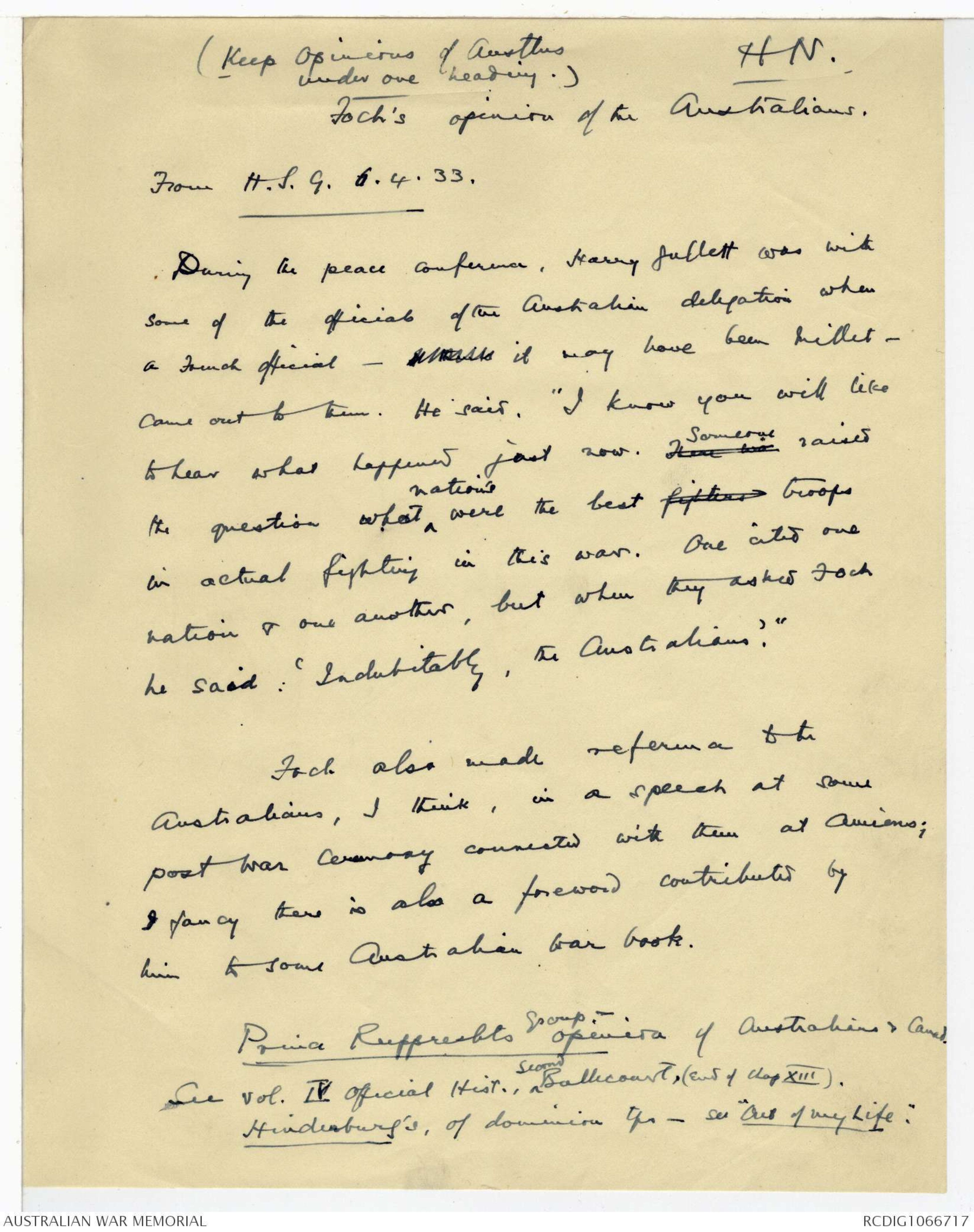
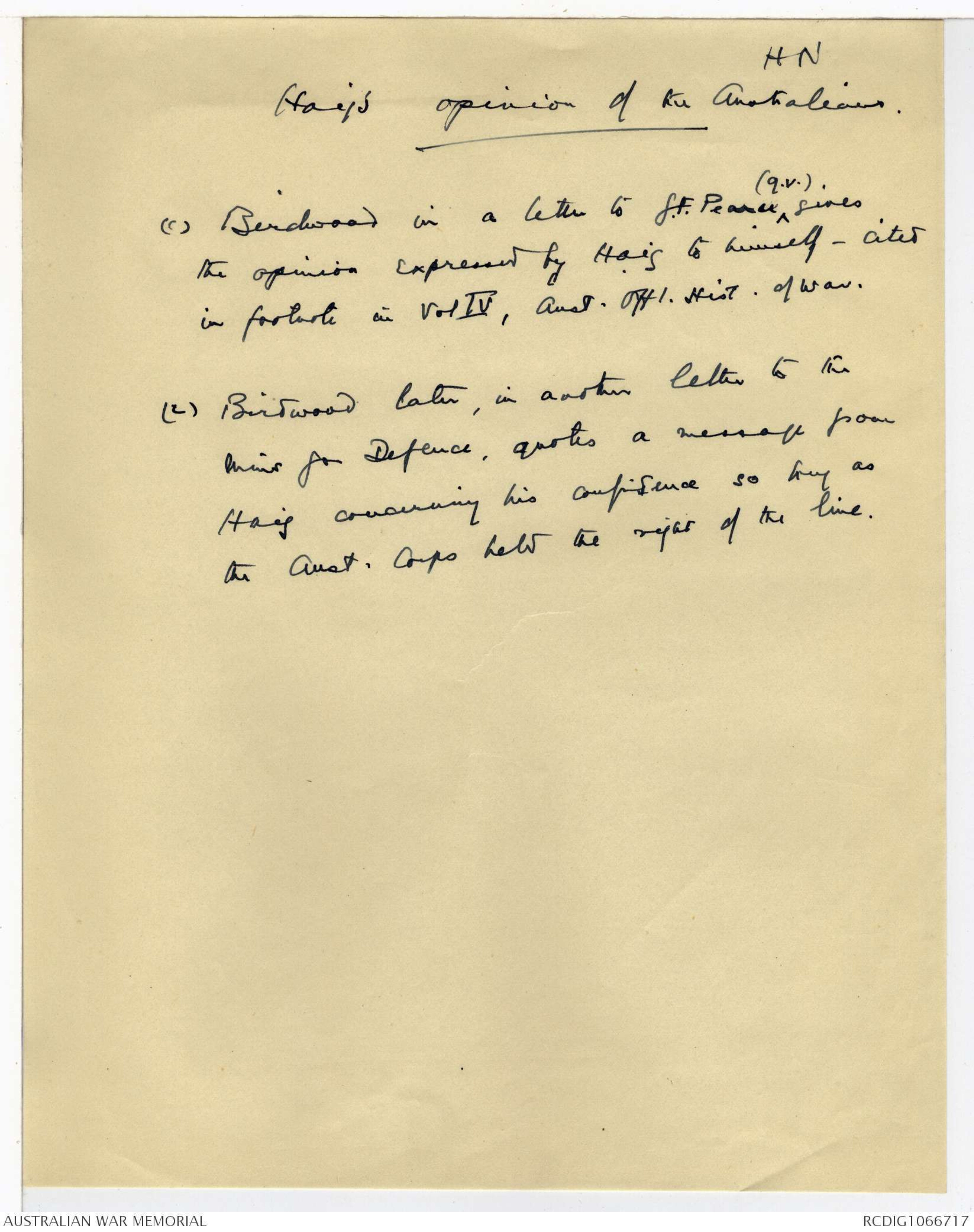
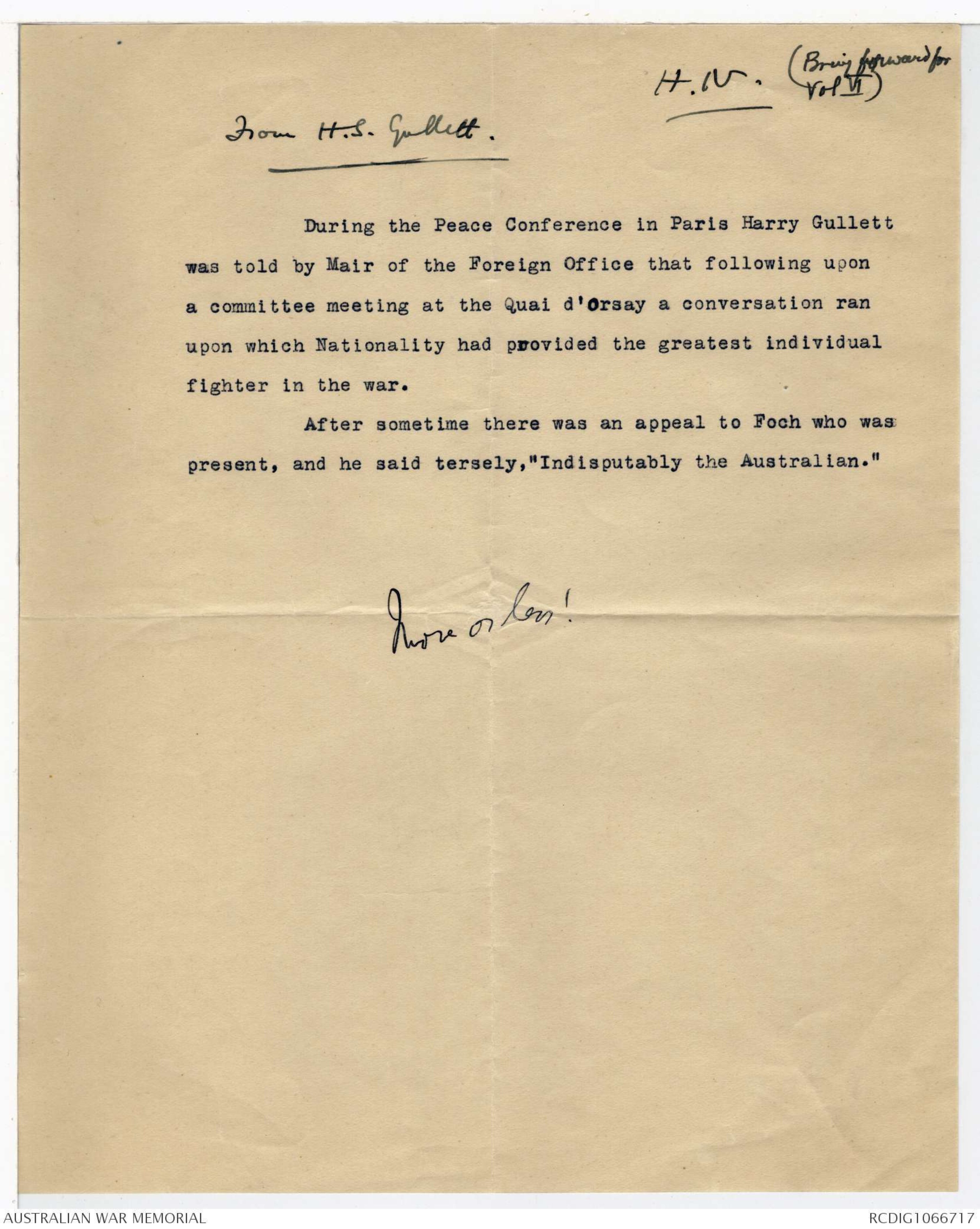
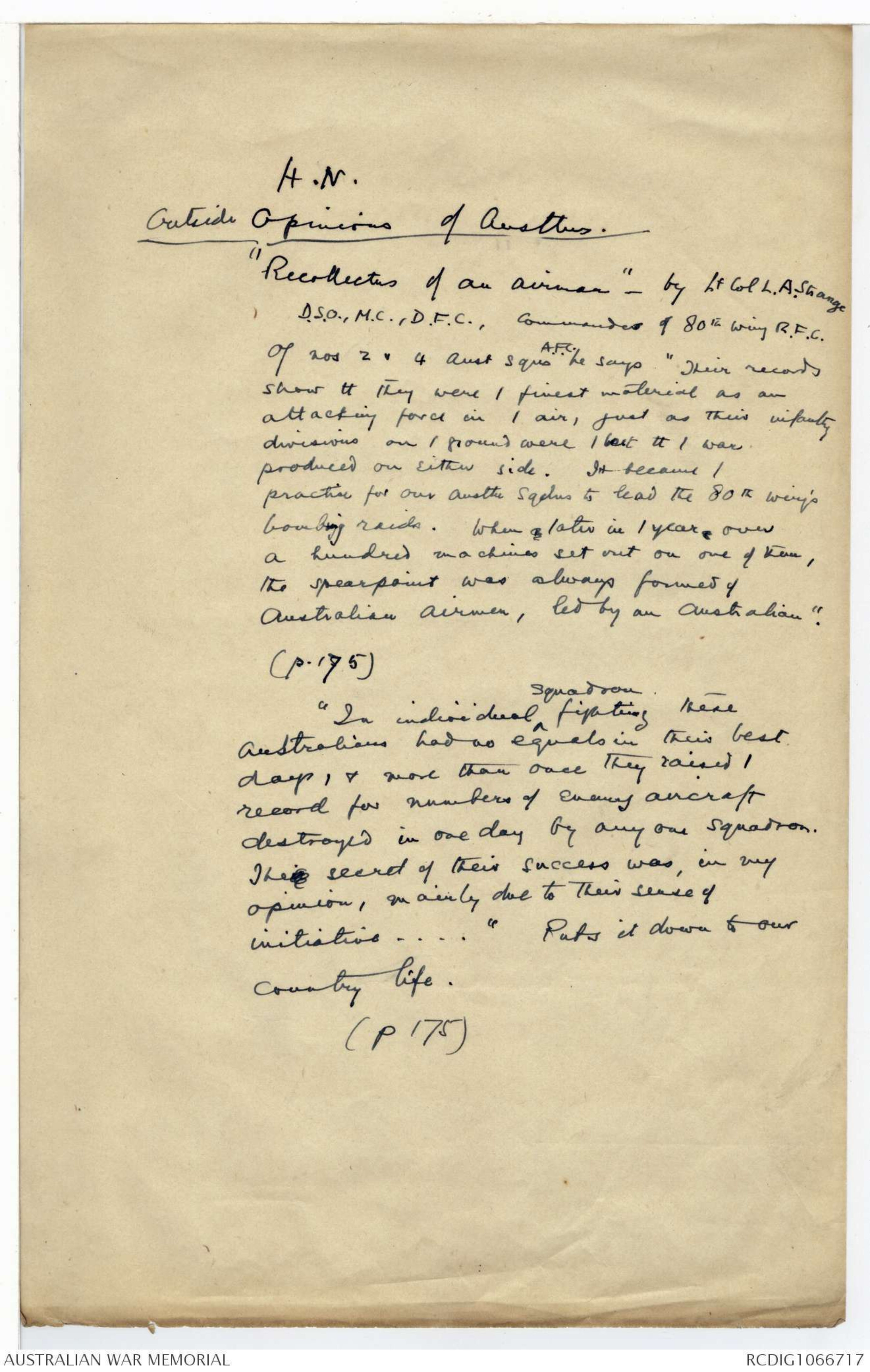
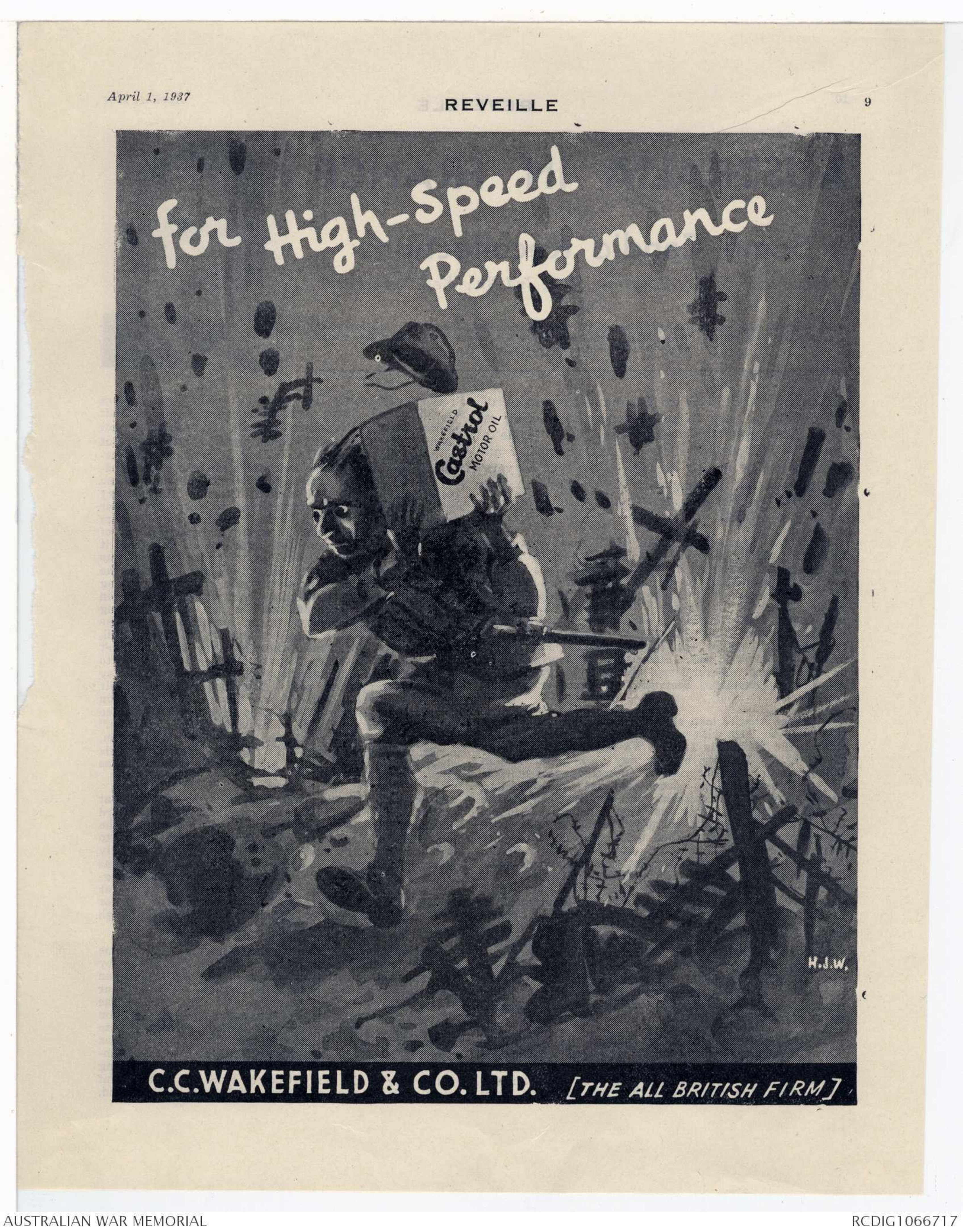
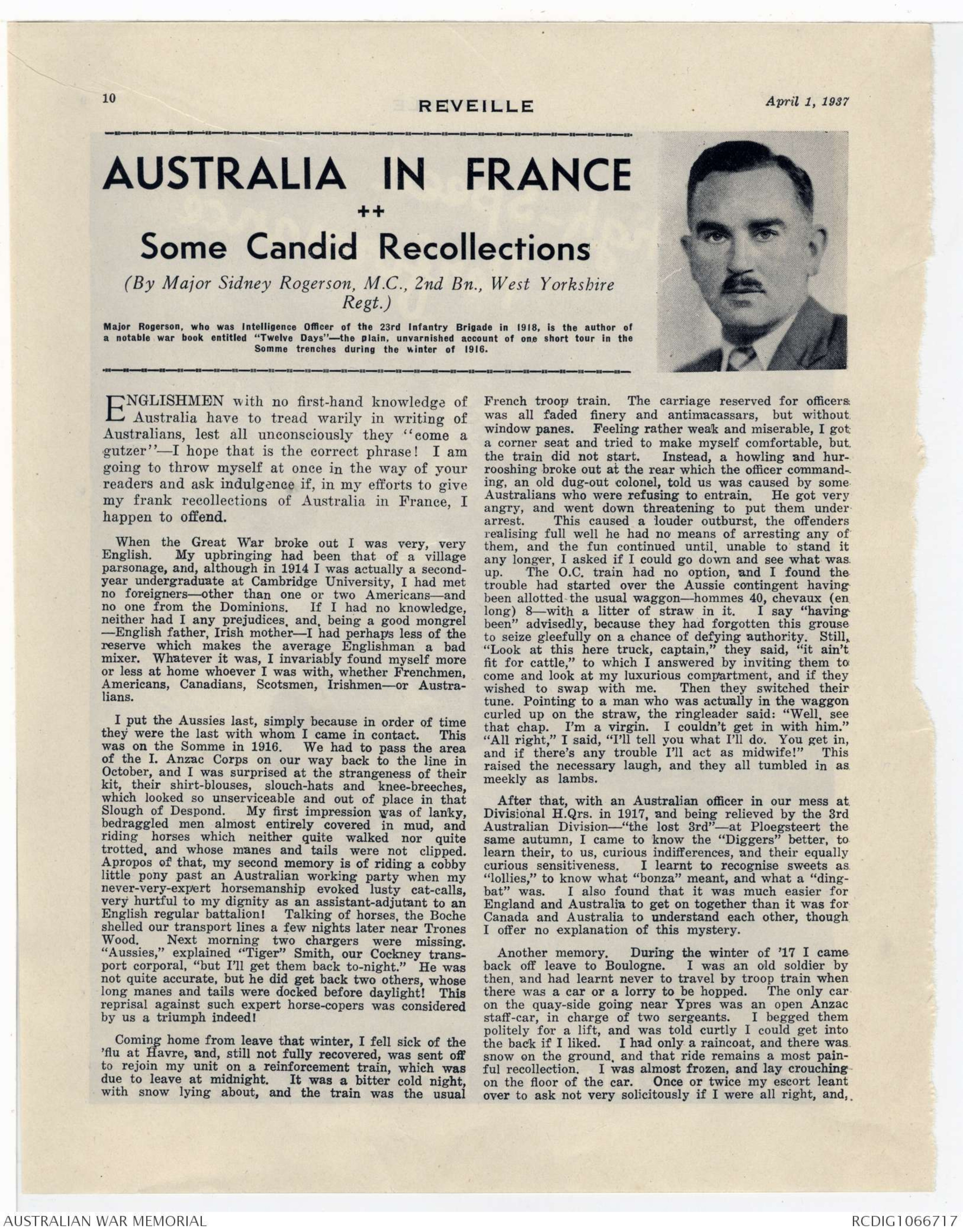
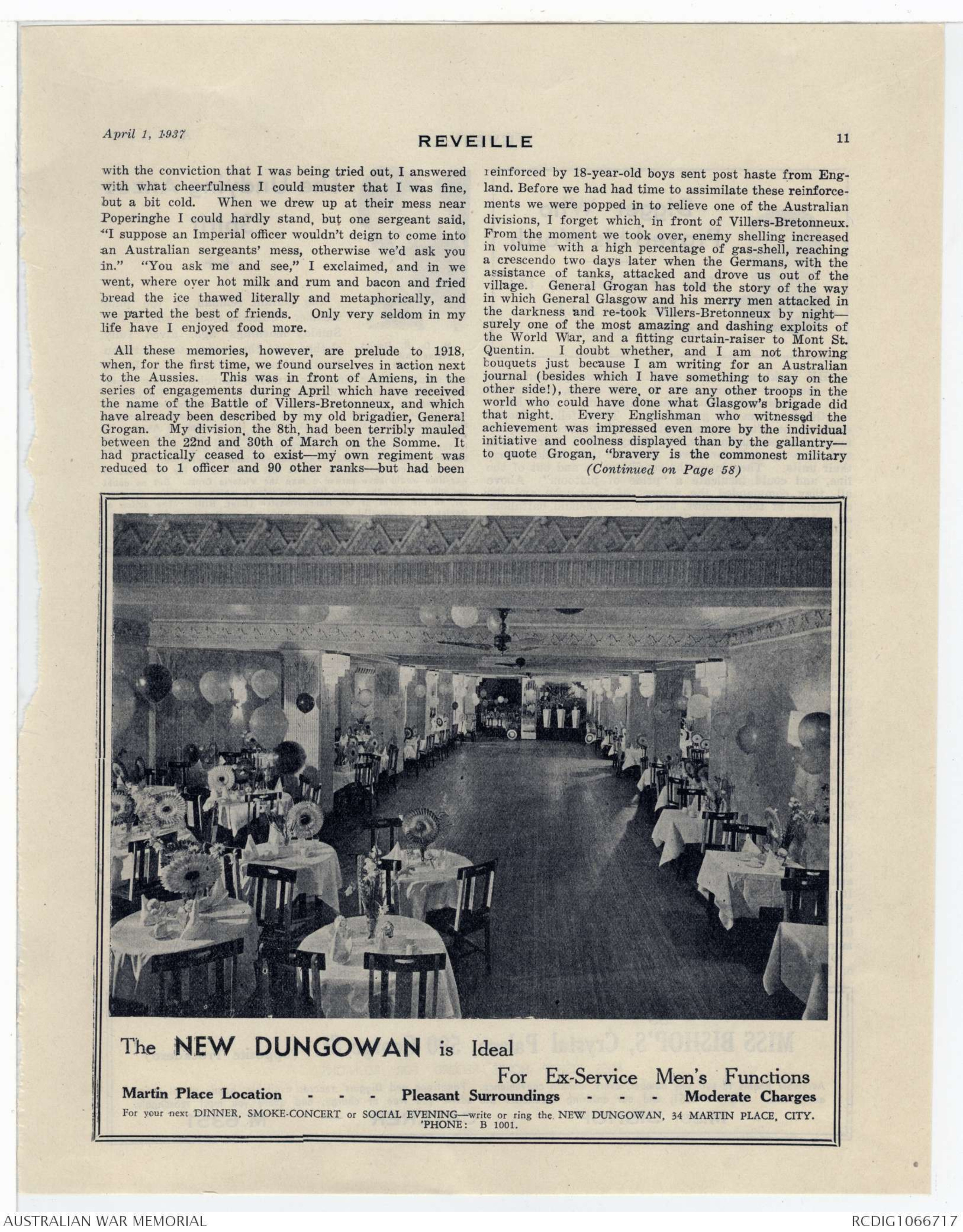
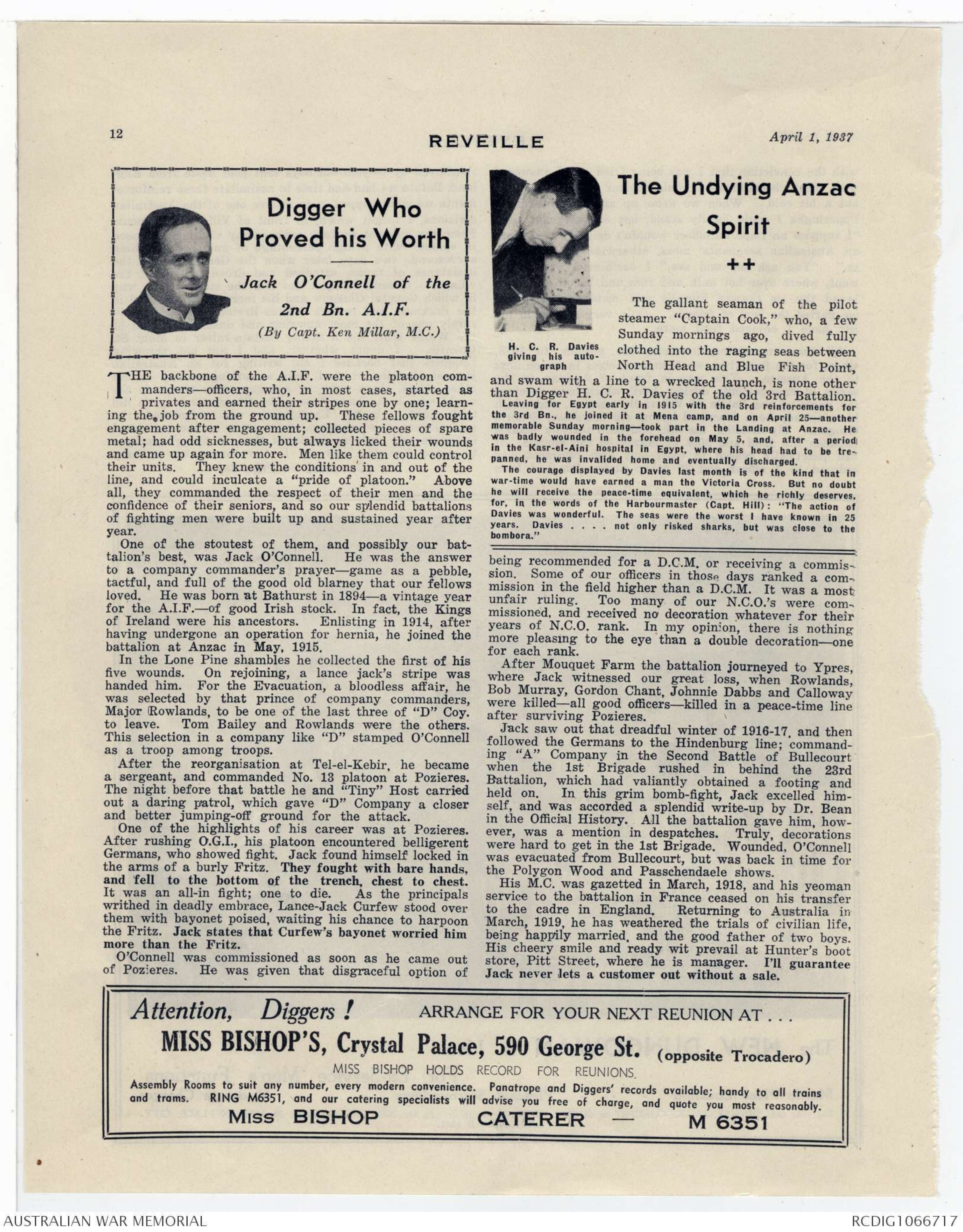
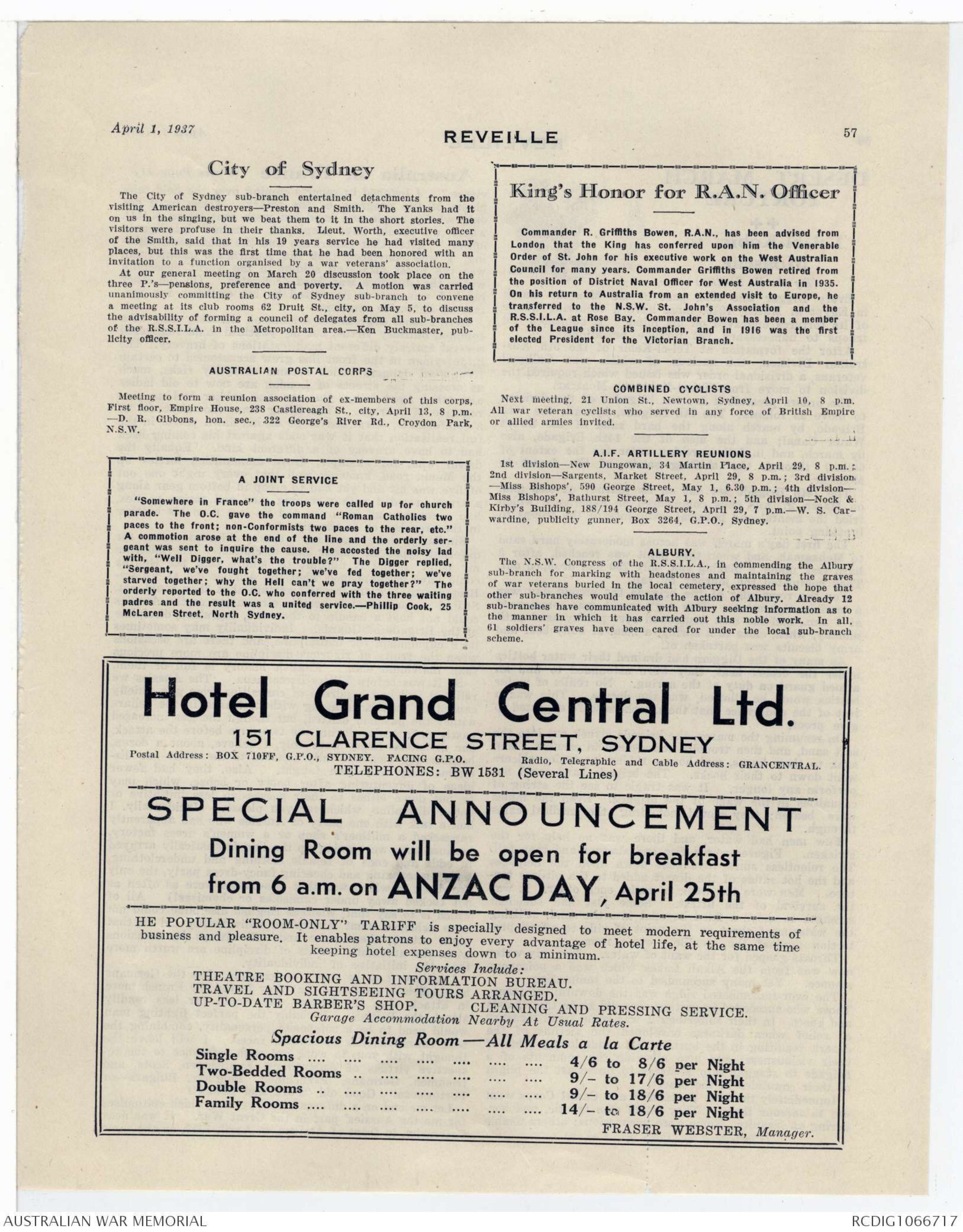
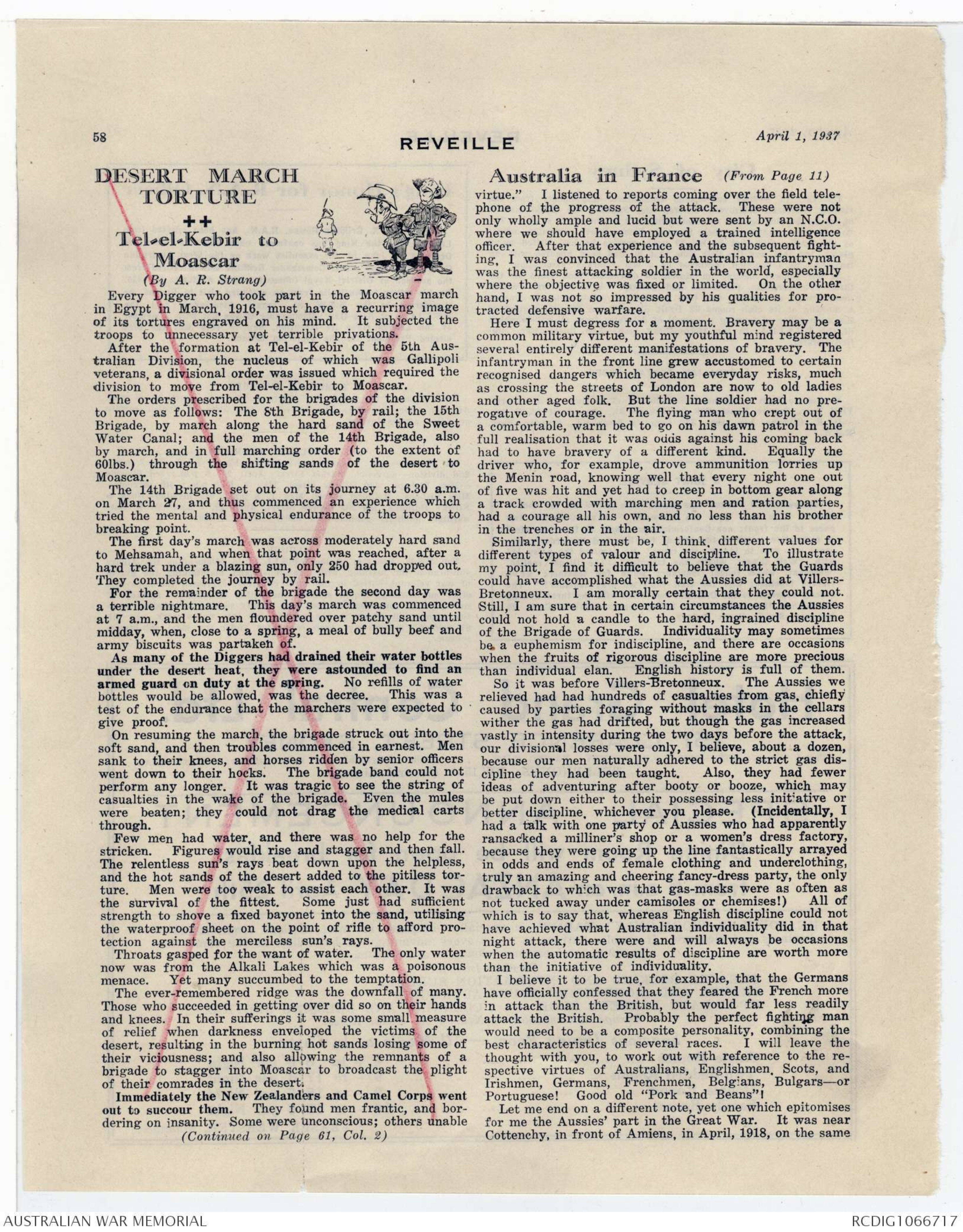
H.N.
(Keep Opinions of AIstlns
under one heading.)
Foch's opinion of the Australians.
From S.S.G. 6. 4. 33.
During the peace conference, Harry Gullett was with
some of the officials of the Australian delegation when
a French official - xxxx it may have been Millet -
came out to them. He said, "I know you will like
to hear what happened just now. There wa Someone raised
the question what ^nations were the best fighter troops
in actual fighting in this war. One cited one
nation ^ one another, but when they asked Foch
he said: 'Indubitably, the Australians.' "
Foch also made reference to the
Australians, I think, in a speech at some
post War Ceremony connected with them at Amiens;
I fancy there is also a foreword contributed by
him to some Australian war book.
Prince Rupprechts Group - [[ ?opinira]] of Australians & Canad.
See vol. IV official Hist., ^ Second Bullecourt, (end of Chap XIII).
Hindenburg's, of dominion Tps - see "Out of my Life."
H.N.
Haig's opinion of the Australians
(1) Birdwood in a letter to G.F. Pearce ^(q.v.) gives
the opinion expressed by Haig to himself - cited
in footnote in Vol IV, Aust. Offl. Hist. of War.
(2) Birdwood later, in another letter to the
Mins for Defence, quotes a message from
Haig concerning his confidence so long as
the Aust. Corps held the right of the line.
H. N. (Bring forward for
Vol VI)
From H. S. Gullett.
During the Peace Conference in Paris Harry Gullett
was told by Mair of the Foreign Office that following upon
a committee meeting at the Quai d'Orsay a conversation ran
upon which Nationality had provided the greatest individual
fighter in the war.
After sometime there was an appeal to Foch who was
present and he said tersely. "Indisputably the Australian."
[*More or less!*]
H.N.
Outside Opinions of Austlns.
"Reflections of an airman" - by Lt. Col. L.A. Strange
D.S.O., M.C., D.F.C., Commander of 80th wing R.F.C.
Of nos 2 & 4 Aust Squs A.F.C. he says " Their records
show tt they were / finest material as an
attacking force in / air, just as their infantry
divisions on / ground were / best tt / war
produced on either side. It became /
practice for our anothr Sqdns to lead the 80th wing's
bombing raids. When x later in / year, over
a hundred machines set out on one of them,
the spearpoint was always formed of
Australian airmen, led by an Australian."
(p. 175)
" In individual ^squadron fighting these
Australians had no equals in their best
days, & more than once they raised /
record for numbers of enemy aircraft
destroyed in one day by any one squadron.
Their secret of their success was, in my
opinion, mainly due to their sense of
initiative . . . . " Puts it down to our
country life.
(p 175)
April 1, 1937 REVEILLE 9
graphic - see original
C.C.WAKEFIELD & CO.LTD. [THE ALL BRITISH FIRM]
10 REVEILLE April 1, 1937
AUSTRALIA IN FRANCE
Some Candid recollections
(By Major Sidney Rogerson, M.C., 2nd Bn., West Yorkshire
Regt.)
Major Rogerson, who was Intelligence Officer of the 23rd Brigade in 1918, is the
author of
a notable war book entitled "Twelve Days" - the plain, unvarnished account of one short tour in the
Somme trenches during the winter of 1916.
article - see original
April 1, 1937 REVEILLE 11
article and advertisement - see original
(Continued on Page 58)
12 REVEILLE April 1, 1937
Digger Who
Proved his Worth
Jack O'Connell of the
2nd Bn. A.I.F.
(By Capt. Ken Millar, M.C.)
[* The Undying Anzac Spirit
H.C.R. Davies
giving his autograph
The gallant seaman of the pilot
steamer "Captain Cook," who, a few
Sunday mornings ago, dived fully
clothed into the raging seas between
North Head and Blue Fish Point,
and swam with a line to a wrecked launch is none other
than Digger H. C. R. Davies of the old 3rd Battalion.
Leaving for Egypt early in 1915 with the 3rd reinforcements for
the 3rd Bn., he joined it at Mena camp, and on April 25 - another
memorable Sunday morning - took part in the Landing of Anzac. He
was badly wounded in the forehead on May 5, and, after a period
in the Kasr-el-Aini hospital in Egypt, where his head had to be
trepanned, he was invalided home and eventually discharged,
The courage displayed by Davies last month is of the same kind that in
war-time would have earned a man the Victoria Cross. But no doubt
he will receive the peace-time equivalent, which he richly deserves,
for, in the words of the Harbourmaster ( Capt. Hill) : " The action of
Davies was wonderful. The seas were the worst I have known in 25
year. Davies . . . . not only risked sharks, but was close to the
bombora." *]
article - see original
advertisement - see original
April, 1, 1937 REVEILLE 57
City of Sydney
King's Honour for R.A.N. Officer
AUSTRALIAN POSTAL CORPS
A JOINT SERVICE
COMBINED CYCLISTS
A.I.F. ARTILLERY REUNIONS
ALBURY
articles and advertisement- see original
58 REVEILLE April 1, 1937
DESERT MARCH
TORTURE
Tel-el-Kebir to
Moascar
(By A.R. Strang)
article - see original
(Continued on Page 61, Col.2)
AUSTRALIA in France (From Page 11)
article - see original
 Sam scott
Sam scottThis transcription item is now locked to you for editing. To release the lock either Save your changes or Cancel.
This lock will be automatically released after 60 minutes of inactivity.